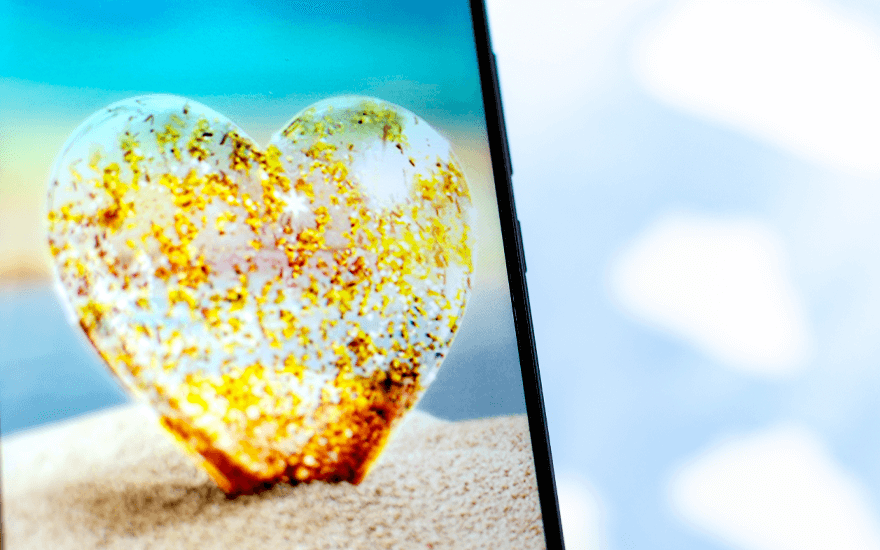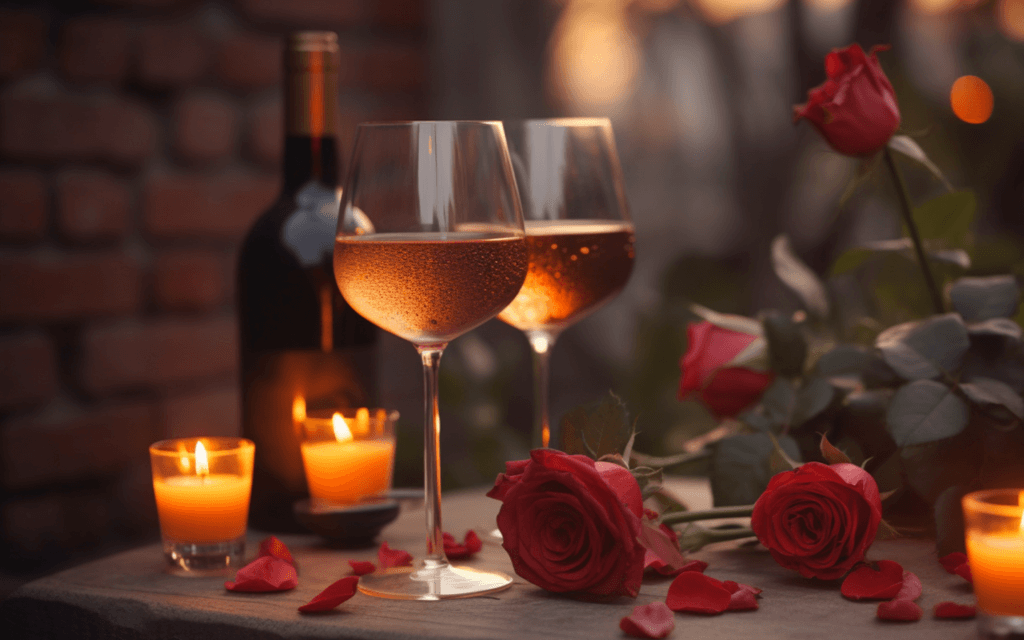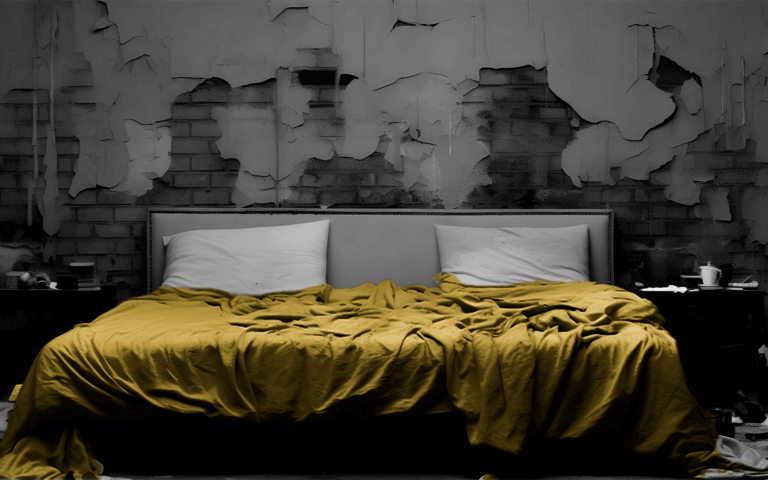December 1965.
The Beatles performed their last official live concert at the Odeon Cinema in Glasgow, Scotland.
A massive power outage plunged parts of the northeastern United States and Canada into darkness, affecting over 30 million people.
NASA launched the Gemini 7 spacecraft, carrying astronauts Frank Borman and James Lovell, a mission that would pave the way for future space exploration endeavors.
Back on solid ground, American game show creator Chuck Barris was hatching a never-before-seen concept for television.
Hosted by Jim Lange, the show featured a bachelorette or bachelor who would ask questions to three hidden contestants vying for their affection.
Based on the answers provided, the bachelorette or bachelor would choose their ideal match without seeing their faces.
Sound familiar?
Our society is so deeply immersed in the cultural phenomena of reality dating shows that we never stop questioning how this all started. Still, history suggests that 1965’s ‘The Dating Game’ was the match that lit the fuse.
Since then, nearly 100 concepts have built upon Barris’ early formula, adapting, developing and adding to a love concoction that is now a firm favorite amongst the hopeless romantics and gossip-obsessed generation.
The big bang of reality shows swarming networks in the early 2000s took dating in a new direction, swapping the more authentic and traditional format for an increasingly dramatic and staged approach.
Today, over 20 years later, little has changed. In fact, audiences are craving more. A quick scroll through Netflix reveals the worldwide clamor. Love Is Blind alone has editions in the U.S., U.K., Brazil, Sweden and Japan; you can indulge in Indian Matchmaking and Jewish Matchmaking and even watch as people try to figure out if their partner is cheating on them in a nightmarish deep fake A.I fuelled the experiment.
Your heart almost goes out to the folk who have to brainstorm fresh concepts. Some outlandish USPs in the catalog include Too Hot Too Handle and its money fuelling abstinence model, Dating & Related verging on keeping it too close to home, and The Ultimatum offering couples a lifetime of happiness or solace.
This was different from what Barris had in mind. “I think you can trace that down like the little fish crawling out of the sea and getting legs and becoming a man,” Barris told SFGATE in a 2003 interview, “but where it went from there, I had no control.”
In part, we as a society have been part of the “black gang,” shoveling coal into the love Furness to keep the engines roaring. But at what cost?
Singletons’ options are limited to aesthetic-based swiping, awkward IRL recommendations from that person who knows that person, or through the dense smoke of a poorly lit nightclub bellowing out Pitbull’s back catalog.
While not the sole cause of the 21st-century love epidemic, dating reality shows’ influence has well and truly seeped into society. So, “Where’s your head at?”
Born from simplicity and spontaneity
When it premiered in the late 1960s, “The Dating Game” was like nothing television executives had seen before. Hosted by the sideburn sporting Jim Lange, this was a simple time, amplified by a never-before-seen “spontaneous element,” according to Barris.
If that spontaneity would survive, the watertight production values of today’s shows are another thing. In an episode aired in November 1970, one of the male hopefuls tasked with simply introducing himself to the young lady beyond the curtain clearly can’t contain himself.
“Hi Tanya, how’s your body?” contestant number three confidently spouts. Nervous laughter intermittently filled with awkward silence breaks out amongst the watching crowd before Lange stops to get the wheels turning again.
“They’re ready to go. By the way, number three, it’s great!”
Spoiler alert; number three did not get the girl.
The dating show genre experienced a decline before finding new life through innovative iterations such as “The New Dating Game” and the U.K.’s beloved “Blind Date.”

As the 1980s and 1990s unfolded, cable television rekindled interest in these shows, creating fresh concepts rooted in their classic foundations.
Beyond the traditional format of arranged encounters, other shows delved into the realm of blind dates. Cameras captured the moments when two individuals, unfamiliar with each other, embarked on a date. Amusing comments and subtitles were added, gently teasing their dating behavior and adding a lighthearted touch.
“He Said, She Said” took a unique approach by shifting the focus to the couple’s contrasting impressions after the date, prompting discussions and potentially funding a second encounter to incentivize their cooperation.
In the real world, a 1989 report by The United States Census Bureau revealed that the number of single adults increased by almost 75 percent over the previous two decades. In 1970, 38 million, or 28 percent, of all adults 18 years and older were single (never married, divorced, or widowed); by 1988, this number had grown to 66 million, or 37 percent of adults.
That number has continued to rise since 1990. A Pew Research Center analysis of census data found that in 2019, roughly four-in-ten adults ages 25 to 54 (38%) were unpartnered – up sharply from 29% in 1990.
As the number of dating shows dominating our lunch break gossip has risen, so has the number of single folks. Can we make any concrete conclusions, or is it purely a coincidence?
A toxic cycle
Celebrity Matchmaker & Dating Expert Rachel London believes the superficial nature of modern dating shows to be society’s downfall. She told Muscle and Health:
“One of the significant changes brought about by these dating shows is the increased emphasis on instant gratification and superficiality.
“Contestants on these shows are often chosen based on their looks and potential for creating drama rather than focusing on deeper compatibility factors. This has led to a culture where appearance and entertainment value are prioritized over long-term compatibility and genuine emotional connections.
“People have started to believe that finding love should be quick and glamorous, emphasizing physical attraction rather than building a solid foundation.”
Shows like ‘Love Island’ also openly encourage body hopping and the idea of exploring all options – vibing, if you will – with the thought of putting one’s eggs into one singular basket coming second to ‘being tested’ by ‘bombshells.’
Past contestants have admitted to being led by producers, ordered to follow scripts and pose the question, “Can I pull you for a chat?” while drawn out and extravagantly over-the-top re-coupling scenes basically replicate the app-based swiping experience – ala Tinder, Bumble and Hinge.
“Glorified toxic behavior has created a culture of competition and conflict in relationships,” says London.
“Contestants are often encouraged to pursue multiple romantic interests simultaneously, leading to jealousy, manipulation, and emotional turmoil.“
“This sensationalized portrayal of relationships can negatively impact how people view and approach their dating lives, as they may start to believe that drama and unhealthy dynamics are a normal part of romantic relationships.”
2022 contestant – Scottish lothario Jay Younger – likened his experience to a “George Orwell 1984 Big Brother”, exposing that supposedly witty lines were given to them by producers and that “they get you to do things. They’re very good at emotional manipulation.”
2018 runner-up Molly Mae Hague made similar comments, stating in an interview with Closer Online that “you have to do things you don’t want to do… for the storyline”, while others have earmarked the show’s edit as unfairly portraying their actions.

Of course, the show has refuted these claims, with a representative saying, “It is absolutely untrue to suggest that Love Island is fake, staged or scripted. The opinions they have and the relationships formed are completely within the Islanders’ control.”
The fast-paced nature and selective editing process have falsely portrayed how a relationship operates. Suppose you were a producer of a reality dating show with the primary goal of entertaining your audience and keeping them hooked. In that case, it’s improbable you would air a five-minute scene of a couple doing the laundry.
“These programs offer a distorted yet influential mirror of society’s expectations and aspirations when it comes to dating and relationships,” says relationship expert Tina Fey, the founder of the dating website Love Connection.
“They’ve made us think we should always be on the hunt for love and settle for nothing less than heart-stopping excitement. As a result, people prioritize this larger-than-life dating narrative over depth and connection.”
Love does exist beyond the screen
It’s not all war when it comes to love. Despite dating shows being universally known for fabricating relationships for gluing eyeballs to screens, they have their benefits.
“It’s important to note that not all aspects of these dating shows are detrimental. They have sparked conversations about love, relationships, and the complexities of human emotions“, says London.
“They have also highlighted the importance of communication and vulnerability in forming connections. Some viewers may find inspiration in seeing couples overcoming obstacles and finding love in unconventional ways.“
These shows are a way to escape the struggles of everyday life, indulge without an overriding sense of guilt, and feel like part of a conversation that far expands the four walls of our homes.
And who can ignore the elephant in the room? As humans, we love drama. We thrive on arguments, bickering, and disagreements.
Beyond getting turned on by the heated intimacy, dating shows “offer visibility to marginalized groups, such as people of different races, sexual orientations, and body types, ” says a Licensed Marriage and Family Therapist, Kalley Hartman.
“By showcasing a diverse range of contestants, these shows can help break down stereotypes and promote inclusivity. In conclusion, dating shows have mixed impacts on modern dating culture.”
Laurie Davis Edwards, a renowned dating coach and the brains behind Flirt, a digital dating service, has a fresh take on dating reality T.V. shows. According to her, these shows offer more than just mindless entertainment—they can impart valuable lessons about love. Even if the wild romances we see on screen don’t exactly match our own lives, there’s still something to be gained from them.
Laurie believes one of the biggest takeaways is the reminder that love does exist. In a world where many singles feel discouraged or doubtful about finding love, these shows symbolize hope. They remind us that love is out there, waiting to be discovered, regardless of the twists and turns it may take.
But there’s more. Laurie suggests that dating reality T.V. shows can inspire viewers to prioritize their existing and future relationships. Just think about it—contestants willingly give up their everyday lives and invest their time and energy into the show. It’s a powerful demonstration of making love a top priority.
Laurie acknowledges that the contestants’ true intentions may only sometimes align with finding genuine love. But that doesn’t mean we can’t learn something valuable from their journey. It’s about extracting the essence of their commitment and applying it to our lives—making love and connection a central focus.
So, while dating reality T.V. shows might have their fair share of drama and questionable motives, Laurie Edwards believes there’s still wisdom to be gained. They can remind us that love is real, encourage us to value our relationships and inspire us to prioritize love.
Ultimately, it’s up to us to take those lessons and apply them in our unique journeys towards finding love.
Because who knows? We might discover our version of happily ever after, even if it doesn’t come with the flashy production and suspenseful music of a reality T.V. show.
So, where’s your head at?






